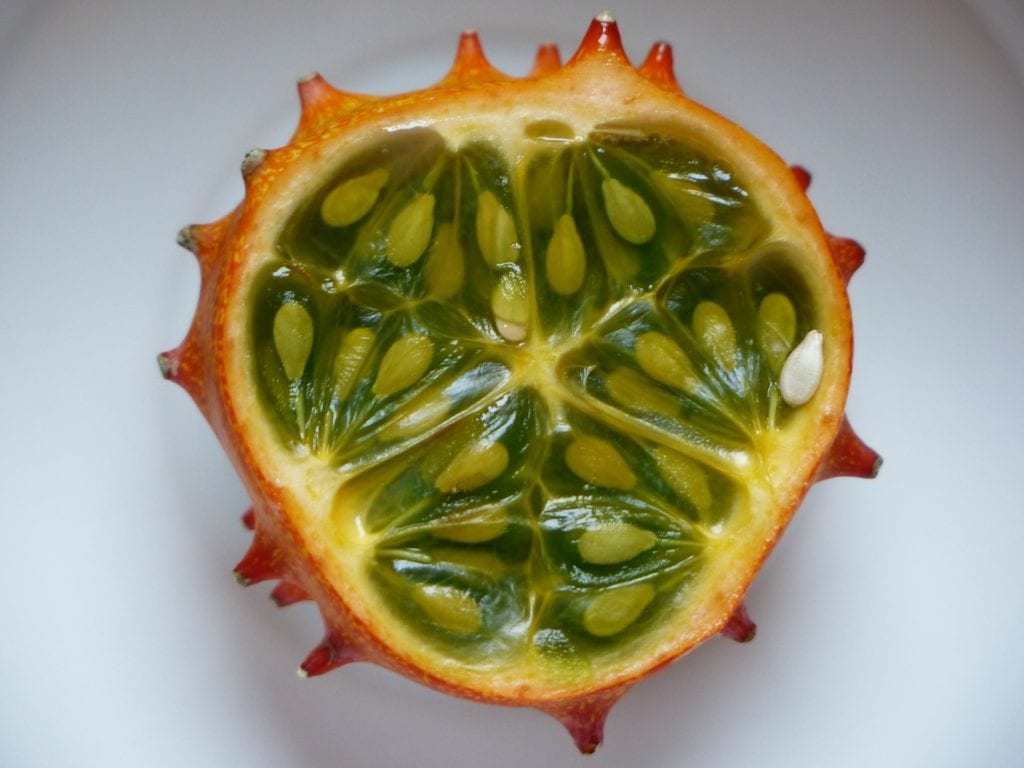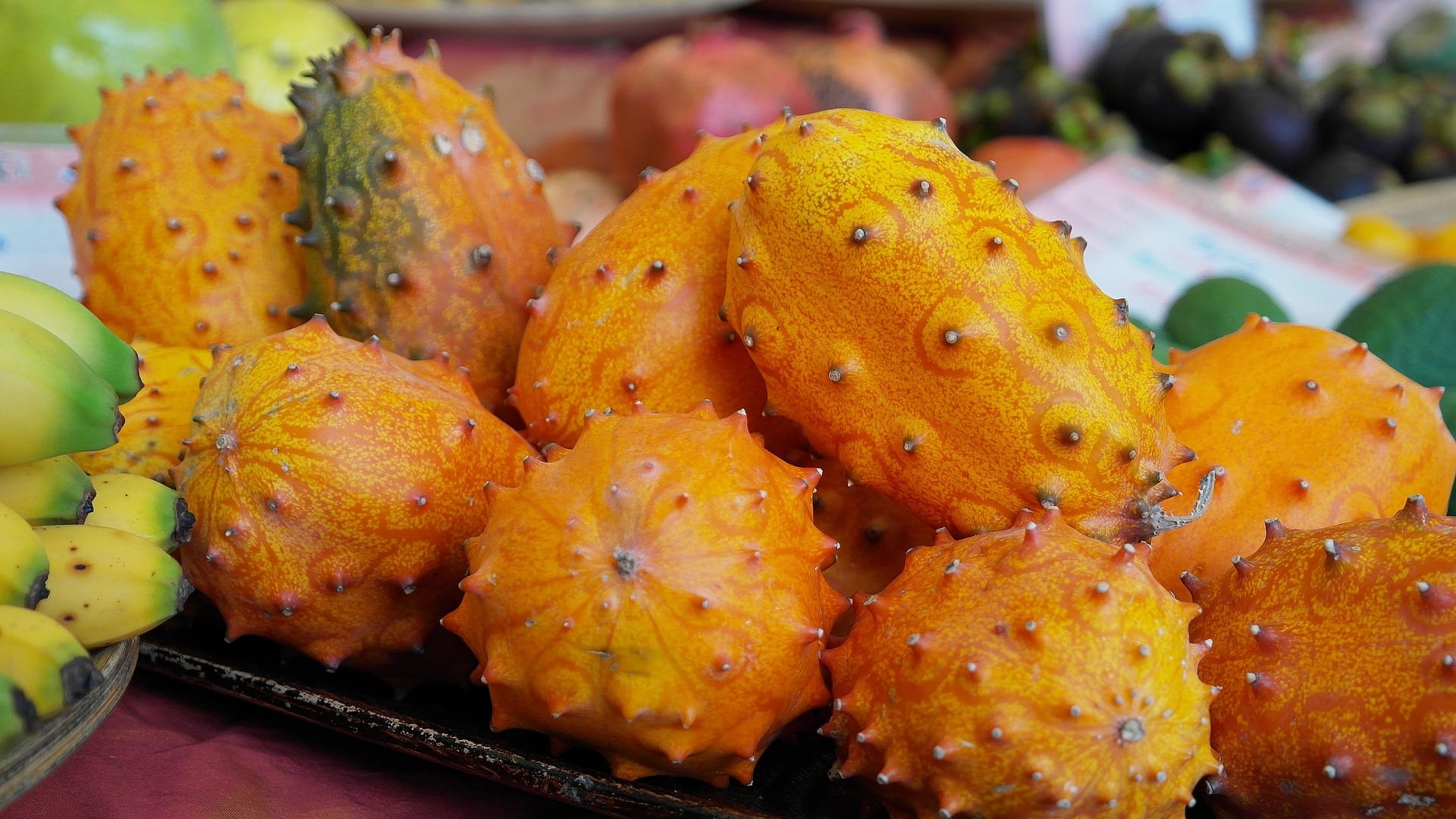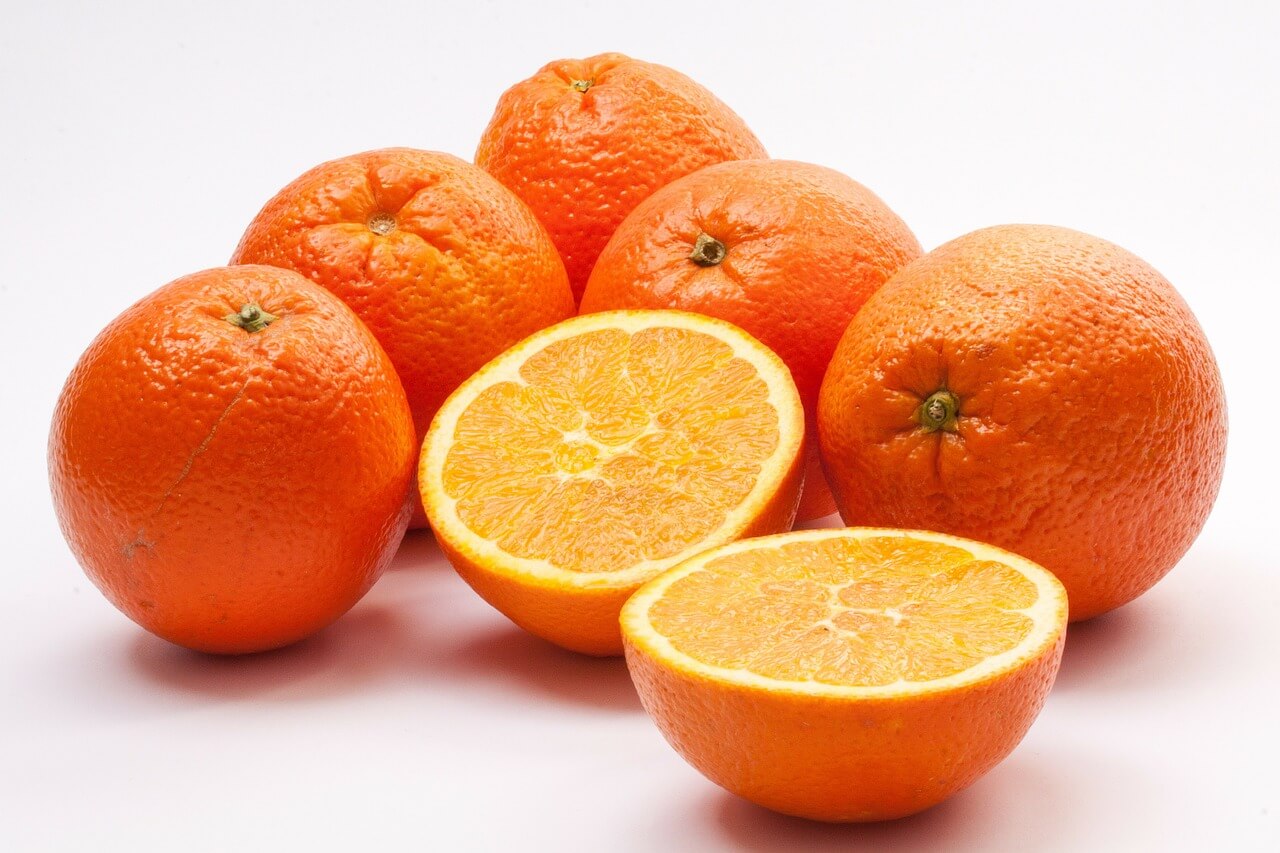The truth is that when we talk about tropical fruits, as is the case of KiwanoWe think of America but Africa also gives us some curious and interesting ones. One of them is the one we present to you in this article, although its more appropriate name would be african melon, cucumber or cucumber. Actually, its term is a commercial name and it was adopted when its cultivation spread in New Zealand. This fruit is from the cucurbitaceae family, like melon, watermelon, zucchini and cucumber. We tell you more about her here.
Currently the Kiwano It is grown in many places in the world such as Australia, Brazil, Israel, the United States, New Zealand, and African countries such as Nigeria, Tanzania and Kenya. Due to its wide cultivation in both hemispheres we can find it during many months of the year in the markets.

Its external appearance is oval and something special since it has some tips. Its size is somewhat greater than ten centimeters and it weighs about 150-200 grams. Although in the markets we will see it in a yellow color, in its optimal maturation it reaches an orange color. If the fruit has arrived in good condition, its conservation is long and can last several months without any problem.
How do you eat kiwano?
El Kiwano it is normally consumed naturally, simply open and it is eaten with a teaspoon like some other fruits. Its flavor is peculiar between a kiwi and a banana, although there are many people that the flavor reminds him of zucchini. It is a very refreshing fruit and a little bitter. Inside has a gelatinous pulp with some green seeds similar but more tender than cucumber.
See this post on Instagram
In addition to eating it natural, they can be made jams and accompany as salad or garnish in sweet and savory dishes. It is also a good ingredient for confectionery for providing a new flavor and being exotic.
Properties and benefits
This tropical fruit stands out for its low caloric value becoming a good ally for weight loss diets since it will only provide 30 Kcal per 100 grams. In addition, it is rich in vitamin A, C, B6, calcium, iron, magnesium, potassium and sodium.
In short, the Kiwano It is different and very interesting since it is refreshing and light with a very low contribution of carbohydrates, proteins and fats. We encourage you to try it if you find it in a greengrocer or supermarket in your city. Otherwise, you can always look for sale options in online stores.







